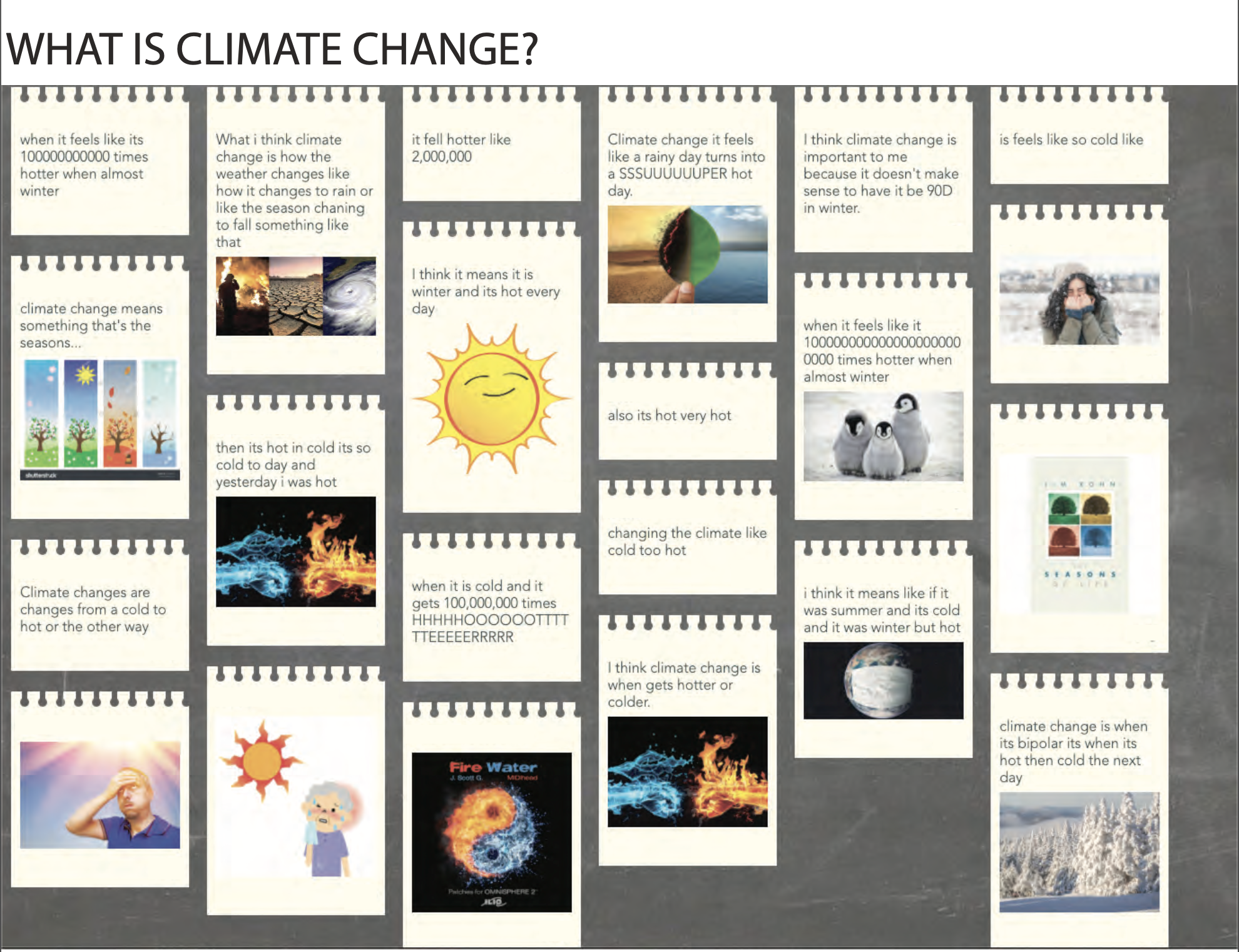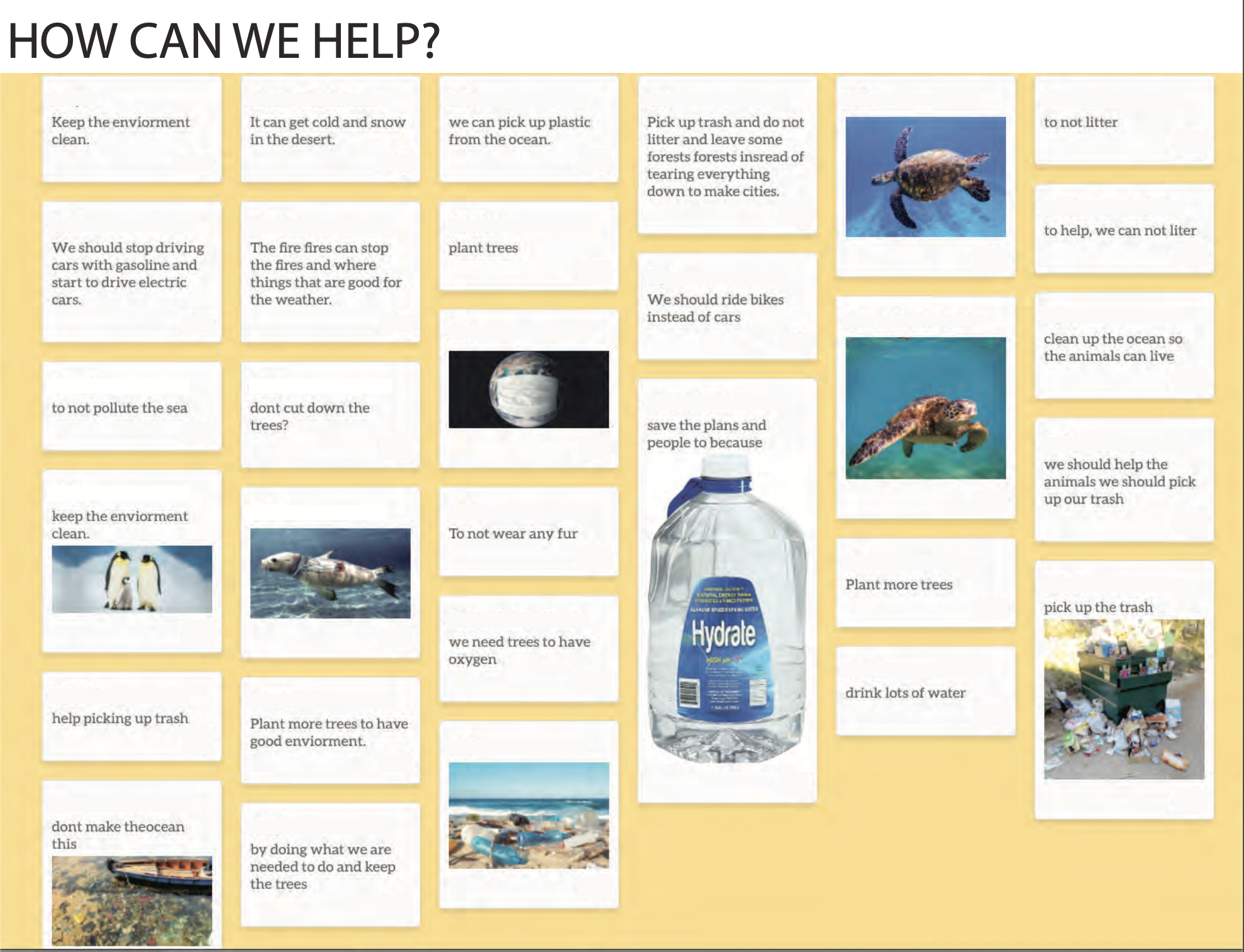“What is Climate Change?” and “How can we help?” — Listening to the Youth
By Katie Matthews, Project Manager
During the past few years, especially leading up to the 2016 and 2020 elections, climate change has been a hot topic of conversation. Whether it is seen as a political issue or just a scientific fact, it is a constant point of contention amongst the country. Industries, such as ours, live in this space and discuss the risks and effects of climate change daily. However, this is not the case for many other sectors or areas of the United States. Over the past few months, with voters hitting the polls to cast their vote for change, it is important to note that any policies made in favor or against the environment are changes that not only affect this current generation but for many generations to follow. While the last few months have been filled with heavy discussion surrounding the election, the pandemic, and civil rights injustices, I decided to turn to some (little) local experts to see their thoughts on the climate change discussion.
I spoke with Noor Gose’s 4th grade class at Paseo Del Rey in Playa Del Ray. I posed two simple questions: “What is Climate Change?” and “How can we help?”. Their answers were pretty encouraging. Young people have continuously shown that Climate Change is an issue that they can process and understand. Case in point: in Time’s 2019 Person of the Year publication, Greta Thunberg who in 2018, at age 15, started a school strike camped outside the Swedish Parliament. Her goal was to bring awareness and protest the local government’s response to climate change — highlighting the stark contrast between attending school when her future, due to climate change, is uncertain. Greta’s actions have now inspired millions of people around the world to follow suit.
Although their understanding may not be as developed as a 15-year-old’s, the 4th graders I questioned were still able to answer “what is climate change?”. The majority of these students were able to understand that climate change was something of concern and that steps exist that help reduce its effects. This ability for students to grasp the importance of the issue highlights the benefits of having climate change as a significant subject to include in curricula of all ages. By allowing for climate change to be discussed in a school setting, kids are able to learn the science and effects in more depth than through the lense of pop culture. If they can understand that turtles are at risk by the use and subsequent disposal of plastic straws, children can handle learning about bigger topics like key contributors to global warming and sea level rise. The earlier that children are introduced to the science of climate change, the sooner they can become strong informed actors and innovators in our fight to combat climate change.
If anything can be taken away from this little questionnaire it’s that young people should not be left out of the conversation when discussing larger issues like climate change; and if you ever need a smile during the midst of a never-ending election and pandemic, ask a kid about turtles.


